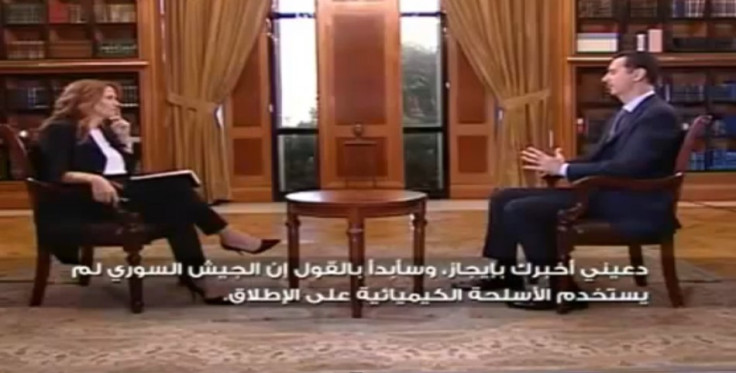Assad: We Will Co-operate Fully with Weapons Inspectors

President Bashir al-Assad has used an Italian TV interview to claim Syria has long agreed to demands to ban chemical weapons, and says his regime will fully comply with inspectors who arrive in Damascus this week.
Speaking on Rai News 24 Assad said: "We joined the international agreement for preventing the use and acquirement of chemical weapons before (the UN) resolution came to light. In 2003 we had a proposal in the United Nations Security Council, to get rid of those weapons in the Middle East, to have a chemical weapons free zone. So, of course we have to comply; this is our history: to comply with every treaty we sign."
Although he rejected the suggestion that he could negotiate with armed groups, Assad claimed there was still a possibility that the conflict might be resolved, and called for a referendum to discover the will of the Syrian people.
"Since the beginning of the crisis, we said political activity or solution, whatever you call it, is a very important part of the crisis. But when you have terrorism, you cannot expect the political solution to solve everything."
Assad also rejected suggestions that UN peace-keepers might be allowed into Syria.
"It doesn't work, because we're not talking about two countries fighting each other, like, for example, Syria and Israel, where you have a frontline, a clear frontline, where you can have the United Nations forces on both sides of the borders or the frontier, let's say, or the armistice line. You need a clear map. There is no clear map."
Once again Assad denied his armed forces used chemical weapons in the attack on Ghouta on 21 August: "The Syrian Army didn't use it at all. It never arranged to use chemical weapons during the crisis, and we have every evidence that the gangs have used this. Now, why the Syrian Army didn't use it? Logically and realistically, you don't use it when you're in advancement. The army was advancing. Why to use it? You didn't use it for two and a half years while you had many difficult situations in different areas in Syria, you had much more terrorists facing you in other places more than Damascus. Why didn't we use it? Why only in that place?"
However, even as the interview was being broadcast round the world, news came of a government air raid on a rebel stronghold in the city of Raqqa, on the banks of the Euphrates, destroying a high school and killing at least 12 people, many of them students.
© Copyright IBTimes 2024. All rights reserved.







